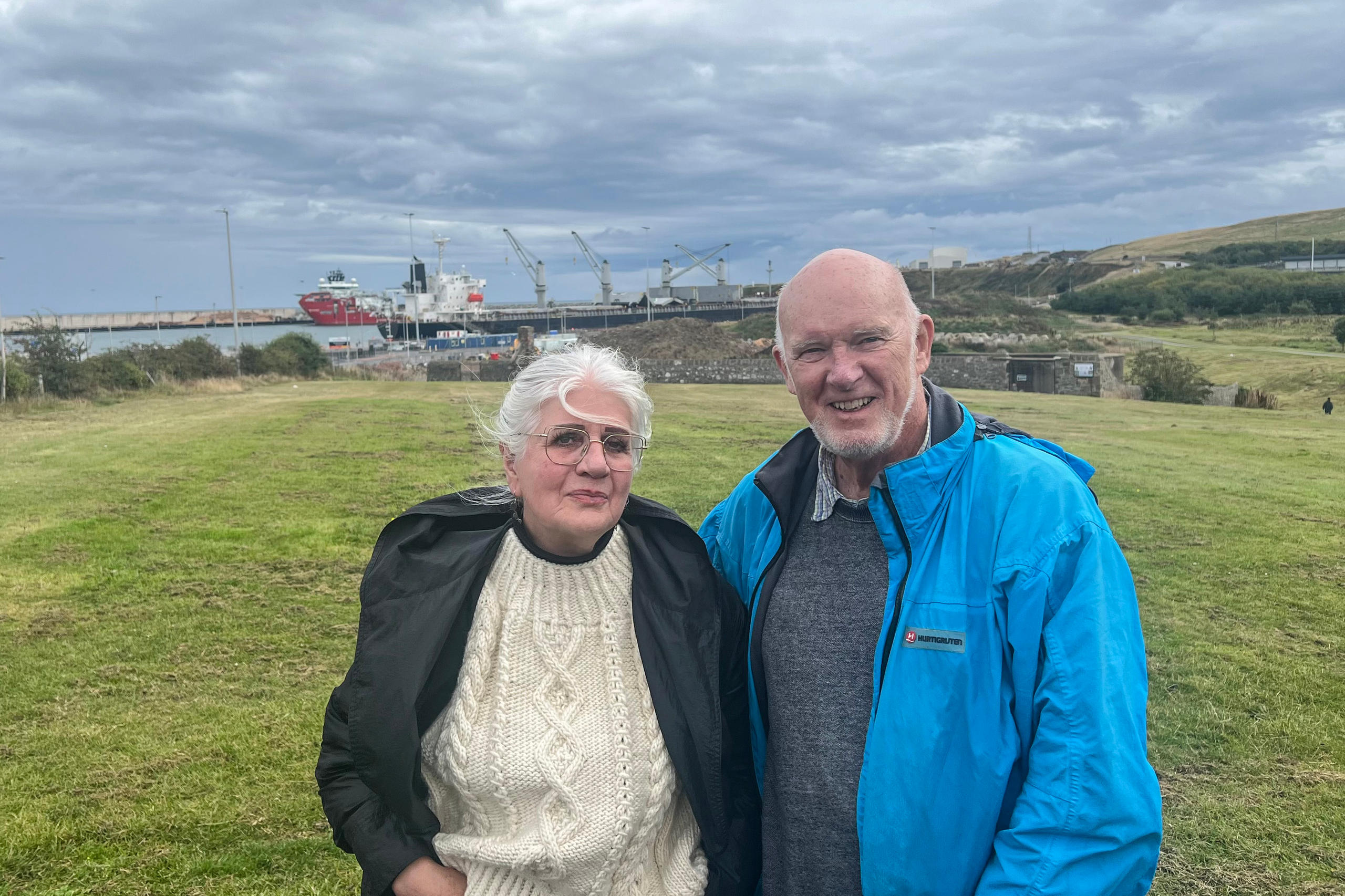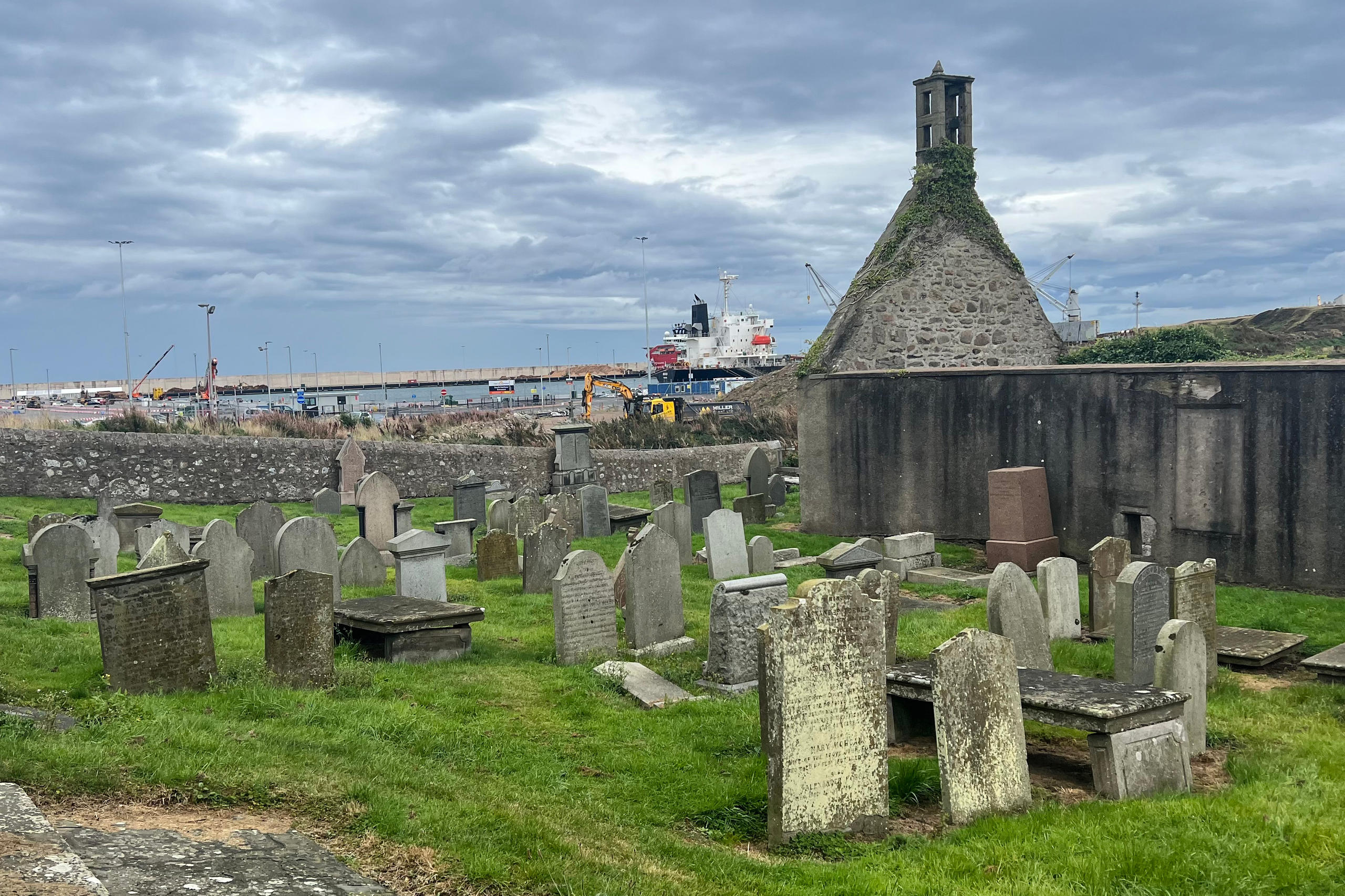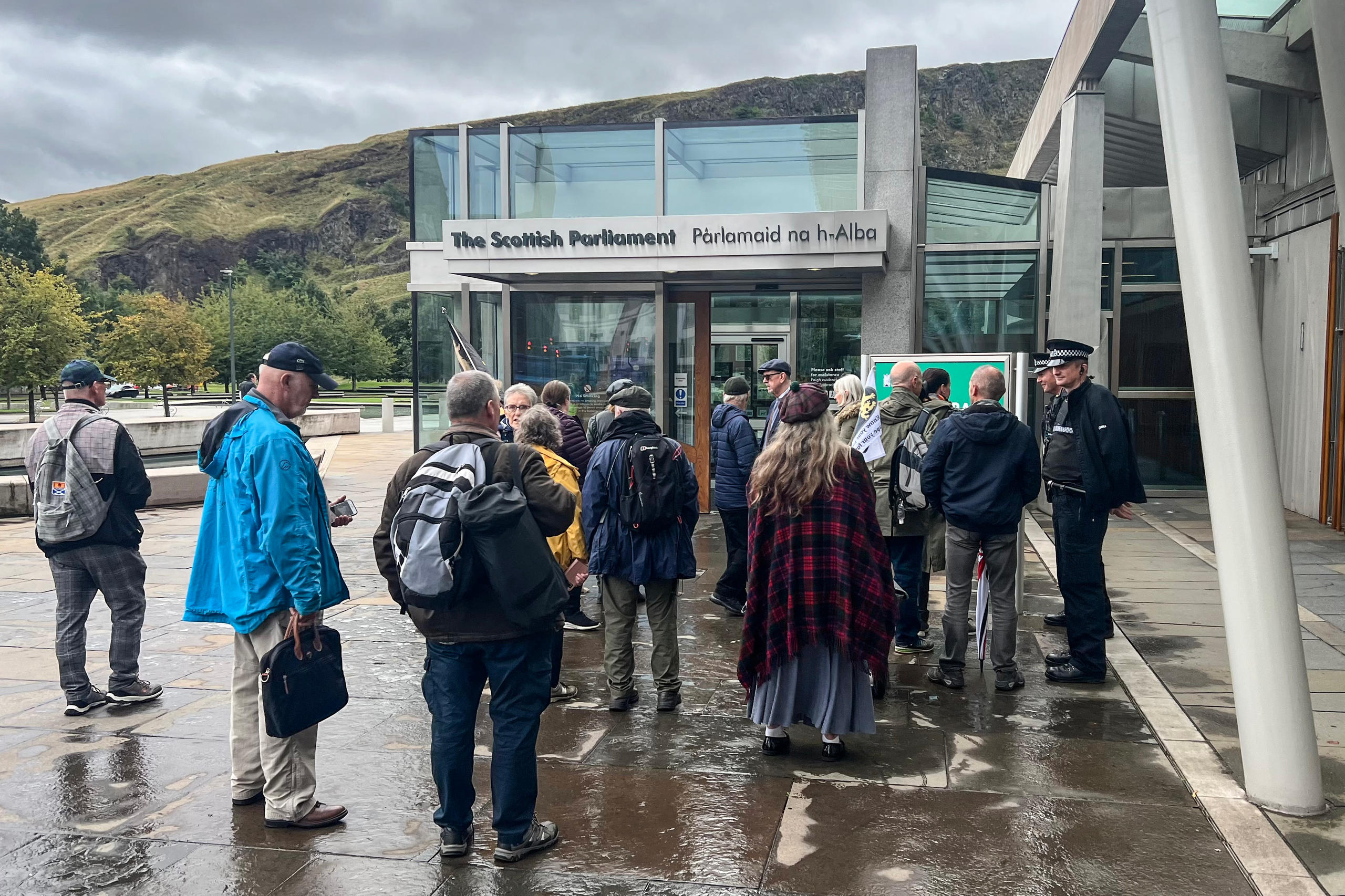
Bringing a hint of Switzerland to Scottish democracy

A chartered accountant from a village outside Glasgow, Henry Ferguson spent time living and working in Geneva. Now he is transmitting some of what he learned about Swiss democracy to the current debate on independence in Scotland.
News from abroad reached me on one of the hottest days of the summer. “There are interesting things happening in Scotland. It’s well worth a visit,” the message read. “I’m trying to contribute my experience of Switzerland to the public debate about the future of democracy in this country.”
A few weeks later I am sitting on a train, shivering and soaked. On the way to the railway station in Edinburgh it had been raining, as it can rain only in Scotland – horizontally. Opposite me now sits a sporty older gentleman wearing a blue rain jacket and a grey pullover. He tells me about his plans: “in order to be really free and independent, we Scots need more decentralisation and direct democracy.”
This article was a result of our democracy correspondent’s open call to the Swiss Abroad to let him know about interesting developments regarding democracy in the country where they live.
Do you have a story to tell? Let us know about it, and invite our correspondent to visit.
My e-mail contact and now fellow passenger is Henry Ferguson, born in 1943 in Uplawmoor, a village 25km south of Glasgow. His father was an accountant, his mother a home-maker. He was the second of three sons, and at the age of nine he was sent off to boarding school in the town of Dollar. After further studies and training in Glasgow, Ferguson was ready to see the world. “At that time Scotland was not much of a place for an adventurous young person,” he says.
‘Peaceful ways towards independence’
The trip from Edinburgh to Aberdeen takes two and a half hours. Within minutes of disembarking, we are crossing the Forth Bridge, a national symbol and a UNESCO world heritage site. One side offers views across the Firth, as fjords are known in Scotland, and out to the North Sea; the other leads upriver toward Stirling. This is where the Scots scored an important victory in their struggle for independence from England at the end of the 13th century. “Today we prefer more preaceful ways towards independence”, says Ferguson.
Our aim on this cool autumn day in Aberdeen is to find out what this means in concrete terms. The third-largest city in Scotland, with some 230,000 inhabitants, Aberdeen has in recent years been mostly a hub and supply depot for the oil and gas industry. Given the decline of fossil fuels, the city now wants to reinvent itself. It’s building a huge new port and industrial complex for wind power and electric-powered transport on “one of the last green spaces left in the city”, Isobel Shand from the lobby group Friends of Saint Fittick’s Park tells us.

In the centre of the park, which is laid out as a natural biotope, are the ruins of Saint Fittick’s Church and the tomb of the Irish monk who landed here following a storm sometime in the 7th century and is known as the patron saint of gardeners. Behind, the cranes of the new port rise into the sky.
“As a country, as a city, and as people, we lack the political tools to make ourselves heard in the face of global and British interests,” says Shand, a retired environmental scientist.
To Switzerland via the Caribbean – and back to Scotland
Ferguson listens carefully. Then he explains how in Switzerland the cantons and local governments enjoy great freedom of decision-making, and how the citizens often end up having the last word on many issues through direct democracy.
Ferguson travelled to Switzerland via the Bahamas. As a qualified accountant, he was offered a job in Nassau at age 24 thanks to someone he had worked with in Glasgow.
In the Bahamas, he worked for a local airline and met his wife, a Swiss national. Their union prompted Ferguson to move to Switzerland in the mid-1970s. He gained Swiss citizenship while living in Geneva in 1998. He worked as a partner for a large auditing company. Among the firm’s clients was the European Free Trade Association (EFTA).

Like many other Scots, Ferguson and Shand became politicised during the public debates leading up to the independence referendum of 2014.
“For the first time, we got a sense of what it might be like to decide our own destiny,” says Shand. “That generated a feeling of empowerment and energy.” In contrast with the independence referendum called by the Catalan government in Spain, the referendum in Scotland had the approval of the British government in London.
For Ferguson, however, the independence debate also revealed that “we in Scotland need a new democratic start, to which I can contribute my knowledge and experience from Switzerland.” These days, he contributes written submissions to public consultations, and attends local meetings and in-person discussions in places like Aberdeen. He’s also posted lectures on Youtube where he patiently explains what Scottish democracy could learn from the Swiss model.
And that’s not all. “I have put together a package of teaching materials on national governance and people’s rights, which I give away to interested organisations,” says Ferguson. He doesn’t expect quick results, “because the independence movement is having to reinvent itself right now”. Among the organisations he is active in are Salvo and Liberation. Both are campaigning for a new Scottish constitution.
No second referendum in sight
In fact, the Scottish National Party (SNP), which has campaigned for decades for a separate Scottish state, is currently at a low ebb. It has managed to govern for the past 18 years without having won a majority, thanks in part to the British first-past-the-post voting system.
Just after the then-First Minister Nicola Sturgeon last year proposed to hold a second independence referendum by this autumn, the government in London vetoed it, and the Supreme Court declined to authorise it. This spring, Sturgeon resigned unexpectedly, just before the SNP became embroiled in a party-financing scandal. The SNP has suffered losses in recent by-elections for the British Parliament.
Ferguson, the Swiss citizen from Uplawmoor, sees only one way forward for his native land.
“We need a culture of consensus and dialogue, rather than one of confrontation and monologue,” he says. “Our political system needs to become more decentralised and embrace direct democracy.”
But this dual national knows it won’t be easy for the Scots to do, 726 years after they beat the English back at Stirling Bridge, and 316 years after the Act of Union that united them with England.
Edited by Mark Livingston
Translated from German by Terence MacNamee/Geraldine Wong Sak Hoi

More
We want to hear your democracy stories

In compliance with the JTI standards
More: SWI swissinfo.ch certified by the Journalism Trust Initiative






























You can find an overview of ongoing debates with our journalists here . Please join us!
If you want to start a conversation about a topic raised in this article or want to report factual errors, email us at english@swissinfo.ch.